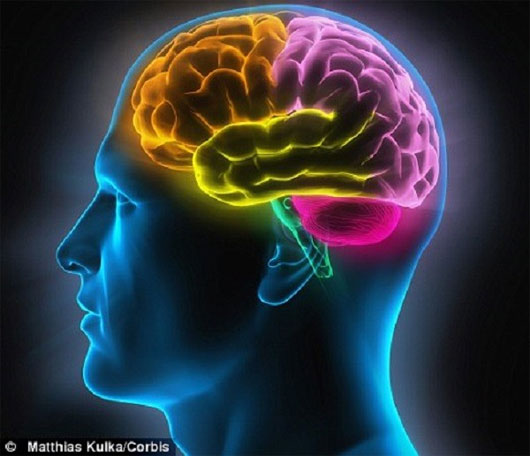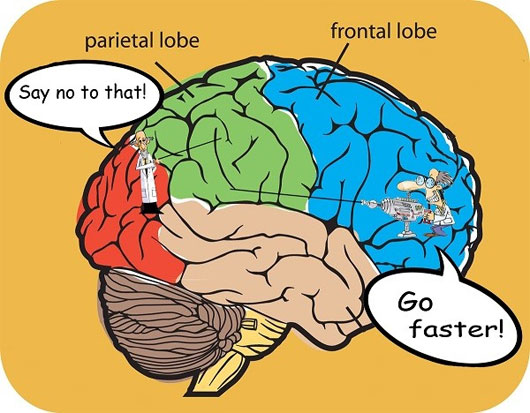Research shows that the brain has a system of anti-distraction
Researchers have discovered the brain's antidepressant system, which helps treat attention-deficit disorders.
Simon Fraser University psychologists have discovered the brain's anti-focusing system , which helps treat attention-deficit disorders. In order to avoid distraction by irrelevant information, our brain relies on an active inhibitory mechanism to try to focus on work, psychology professor John McDonald and his colleague John Gaspar found. specific action.
This study was carried out with three experiments with 47 healthy students, at the age of 21. Researchers gave the test along with a visual search task that required high attention for students.

During the test, experts will conduct a measurement of the electroencephalogram signal from the sensor. Accordingly, indicators of neurological inhibition, or free radicals (the source of aging and disease - born in the body by natural metabolism or from the environment) have made the brain poor performance and cause cerebrovascular disorders. Free radical attacks damage nerve cells, cause disorder and deficiency of neurotransmitters, weaken brain function
In response to distraction, the important task is to destroy free radicals - the 'enemy' of the brain. Anthocyanin, Pterostilbene . are confirmed by scientists as a powerful assistant to help us "fight" with this enemy.
These active ingredients pass through the blood-brain barrier, neutralize free radicals, increase neurotransmission, limit damage and enhance the activity of nerve cells. In addition, the brain will rely on a separate inhibitory mechanism to avoid distraction by irrelevant information when trying to focus on specific tasks.

McDonald's, the lead author of the study, said: "Distraction is the leading cause of driving accidents. Besides, distraction also causes disorders of ADHD (increased mobility decreases. Italy) increased " .
Currently, experts are continuing to study to help us deal with distraction. Gaspar adds: "There is evidence that distraction will also increase with age and men tend to lose sight more visually than women".
The study was published in the journal Neuroscience.
- The brain pays attention in two ways
- Understanding non-brain animals knows how to sneeze like a human
- Causes of distraction when working and studying
- Older brains may be better than young people
- Brain human brain worms breed?
- Has the pig brain kept living outside the body?
- American power transmission into the brain soldiers to increase focus
- Sleep helps eliminate toxins in the brain
- Phone makes people more distant?
- Shocking findings about human readability
- The secret to helping your performance can increase by nearly 80%
- Air pollution causes brain aging
 Green tea cleans teeth better than mouthwash?
Green tea cleans teeth better than mouthwash? Death kiss: This is why you should not let anyone kiss your baby's lips
Death kiss: This is why you should not let anyone kiss your baby's lips What is salmonellosis?
What is salmonellosis? Caution should be exercised when using aloe vera through eating and drinking
Caution should be exercised when using aloe vera through eating and drinking